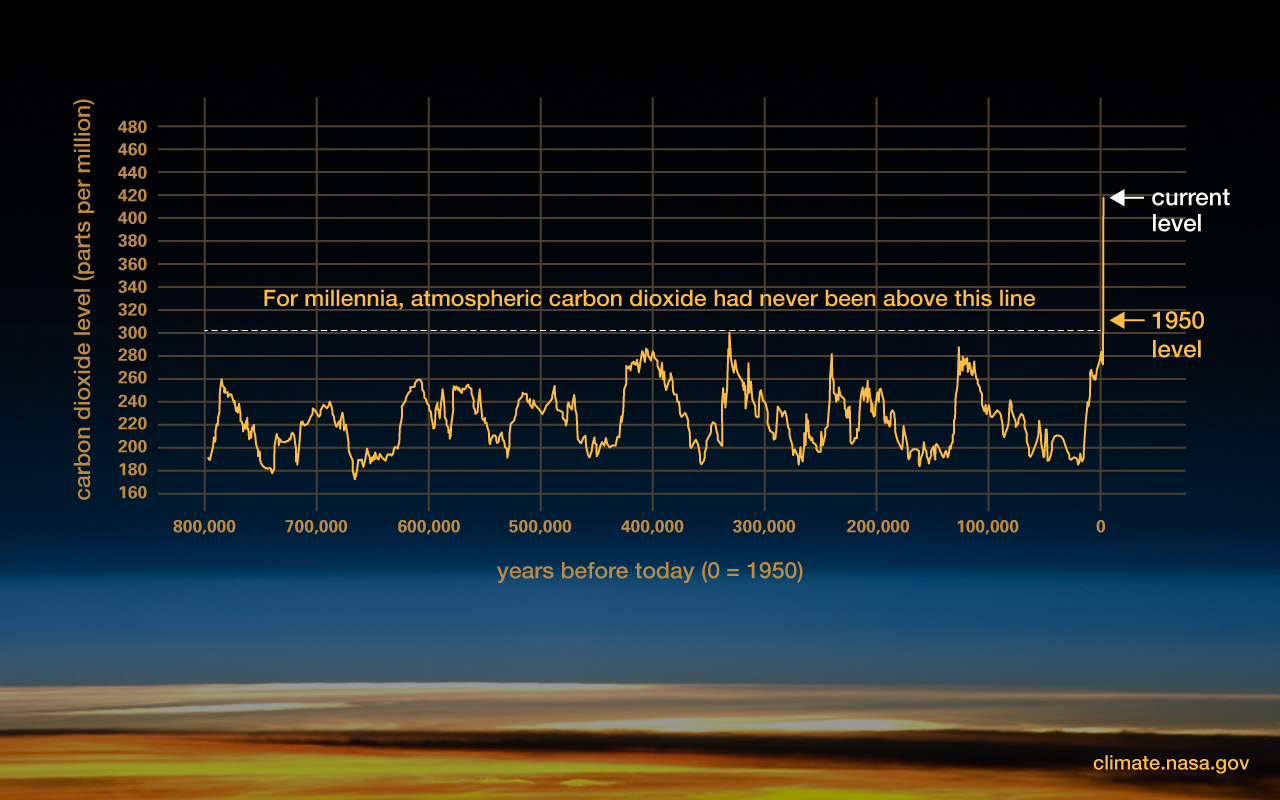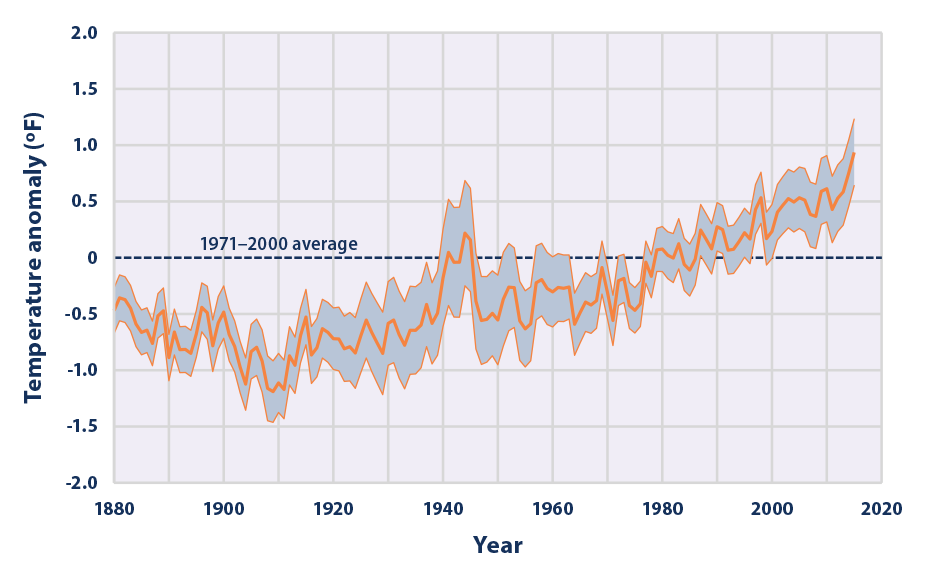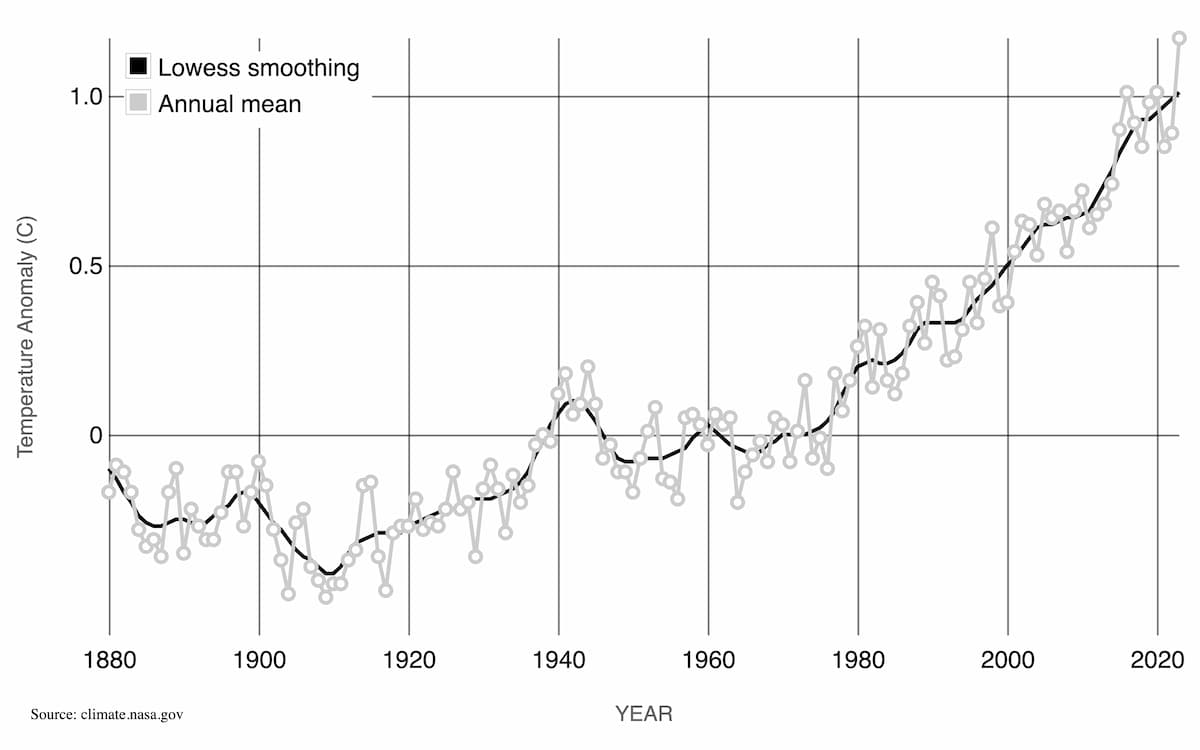It would help your case if all your previous "bull shit"s hadn't turned out to be simple demonstrations of your ignorance.
From a junior high school level article from Columbia
How can CO2 trap so much heat if it only makes up 0.04% of the atmosphere? Aren’t the molecules spaced too far apart?
Before humans began burning fossil fuels, naturally occurring greenhouse gases helped to make Earth’s climate habitable. Without them, the planet’s average temperature would be below freezing. So we know that even very low, natural levels of carbon dioxide and other greenhouse gases can make a huge difference in Earth’s climate.
Today, CO2 levels are higher than they have been in at least
3 million years. And although they still account for only
0.04% of the atmosphere, that still adds up to billions upon billions of tons of heat-trapping gas. For example, in 2019 alone, humans dumped
36.44 billion tonnes of CO2 into the atmosphere, where it will linger for hundreds of years. So there are plenty of CO2 molecules to provide a heat-trapping blanket across the entire atmosphere.
In addition, “trace amounts of a substance can have a large impact on a system,” explains Smerdon.
Borrowing an analogy from Penn State meteorology professor David Titley, Smerdon said that “If someone my size drinks two beers, my blood alcohol content will be about 0.04 percent. That is right when the human body starts to feel the effects of alcohol.” Commercial drivers with a blood alcohol content of 0.04% can be convicted for driving under the influence.
“Similarly, it doesn’t take that much cyanide to poison a person,” adds Smerdon. “It has to do with how that specific substance interacts with the larger system and what it does to influence that system.”
In the case of greenhouse gases, the planet’s temperature is a balance between how much energy comes in versus how much energy goes out. Ultimately, any increase in the amount of heat-trapping means that the Earth’s surface gets hotter. (For a more advanced discussion of the thermodynamics involved, check out
this NASA page.)
If there’s more water than CO2 in the atmosphere, how do we know that water isn’t to blame for climate change?
Water is indeed a greenhouse gas. It absorbs and re-emits infrared radiation, and thus makes the planet warmer. However, Smerdon says the amount of water vapor in the atmosphere is a consequence of warming rather than a driving force, because warmer air holds more water.
“We know this on a seasonal level,” he explains. “It’s generally drier in the winter when our local atmosphere is colder, and it’s more humid in the summer when it’s warmer.”
As carbon dioxide and other greenhouse gases heat up the planet, more water evaporates into the atmosphere, which in turn raises the temperature further. However, a hypothetical villain would not be able to exacerbate climate change by trying to pump more water vapor into the atmosphere, says Smerdon. “It would all rain out because temperature determines how much moisture can actually be held by the atmosphere.”
Similarly, it makes no sense to try to remove water vapor from the atmosphere, because natural, temperature-driven evaporation from plants and bodies of water would immediately replace it. To reduce water vapor in the atmosphere, we must lower global temperatures by reducing other greenhouse gases.
CO2 molecules make up only a small percentage of the atmosphere, but their impact on our climate is huge. The reason comes down to physics and chemistry.

news.climate.columbia.edu
How is carbon dioxide "being dampened by our atmosphere"? What is that even supposed to mean?
This is at least the second or third time you've been shown this article.
Researchers have published results in Environmental Research Letters confirming strong warming in the upper troposphere, known colloquially as the tropospheric hotspot. The hot has been long expected as part of global warming theory and appears in many global climate models.

phys.org
AR6 actually raised their CS estimate and narrowed its range compared to the numbers shown in AR5.
Source? Reference? Link?
The actual scientists of the planet disagree with you. They conclude it is in between 2.5C and 4C (3.25C +/-0.75C) and they back that up with an enormous amount of science. What science, exactly, backs up your claim that it's actual value is 0.024C

climate.nasa.gov








